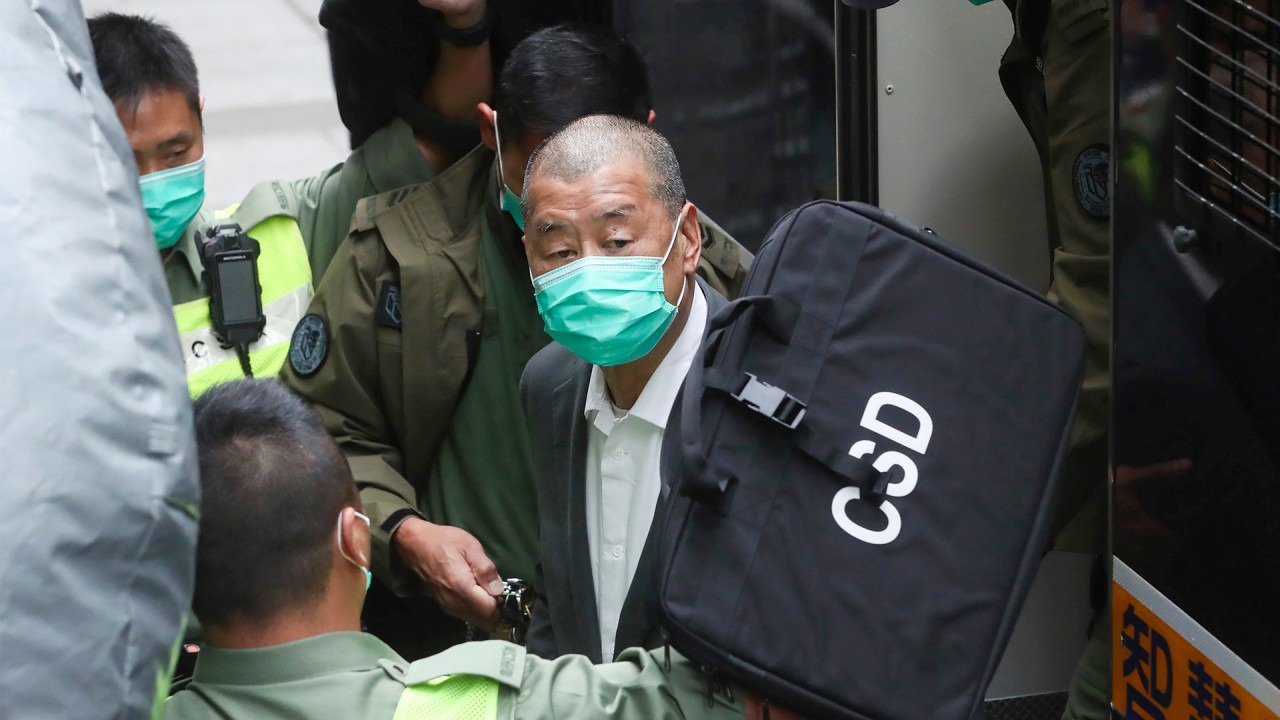
Freezing of HK$500 million of media tycoon Jimmy Lai’s assets nothing to do with press freedom, says Hong Kong security chief
- Secretary for Security John Lee said decision was made based on information available and connected to national security law
- Trading in shares of Next Digital was suspended on Monday at company’s request, hours before Lai pleaded guilty to unauthorised assembly charge
Trading in Next Digital shares was suspended on the Hong Kong stock exchange in the morning, two days after the Security Bureau froze assets belonging to Lai, who is the controlling shareholder.

01:28
Assets of jailed media tycoon Jimmy Lai frozen under Hong Kong's national security law
Secretary for Security John Lee Ka-chiu refused to go into detail about the frozen assets, only saying the government would make use of all legal measures to prevent and suppress any activities that endangered national security.
“Any activities that contravene the law, then the individuals or the related organisation will have to face the full force of the law,” Lee said. “It is the illegal activities that we are dealing with, it is not press work.
“In regard to the timing of my issuing the [freezing] notices, I [would] issue it when I have reasonable suspicion, [and belief] that the power should be exercised.”
Lee said he had the right to freeze assets linked to any national security offences and he would do so when necessary. He declined to comment on rumours that the government will ban the operation of local tabloid-style newspaper Apple Daily by July 1.
Future of Hong Kong’s Apple Daily on the line after freezing of founder’s assets
Next Digital released a statement on Monday via the website of the Hong Kong Exchanges and Clearing, saying it had requested its shares be suspended from 9am “pending the release of an announcement” in relation to the Security Bureau’s freezing of the assets and shareholdings in the company.
Lai holds 71.26 per cent of shares in the company, which publishes Apple Daily, according to Hong Kong stock exchange filings.
The stake is worth HK$348 million based on the group’s HK$490.3 million market capitalisation on Friday, when the stock was trading at 19 HK cents.
Authorities that day froze Lai assets, including his shares in Next Digital, and the property in the local bank accounts of three companies owned by him, marking the first time a listed firm has been targeted under the sweeping security law.

The tycoon is currently serving 14 months in prison for taking part in other unauthorised assemblies connected to the anti-government protests of 2019.
On December 11, police also charged Lai with collusion with a foreign country under the national security law, and brought two further charges of conspiracy last month.
Executive Councillor and barrister Ronny Tong Ka-wah on Monday told an RTHK radio show he believed there were a variety of reasons that could justify a temporary halt in trading, and urged the public not to panic over the freezing of Lai’s assets.
“The existing laws allow authorities to freeze property if it is related to criminal acts … The national security law also just granted new powers specifically to the secretary for security to execute [asset freezes],” he said.
Article 43 of the law grants police the power to freeze property used or intended to be used in a national security offence. Officers can also seize proceeds of the crime and any other property related to the offence committed.


